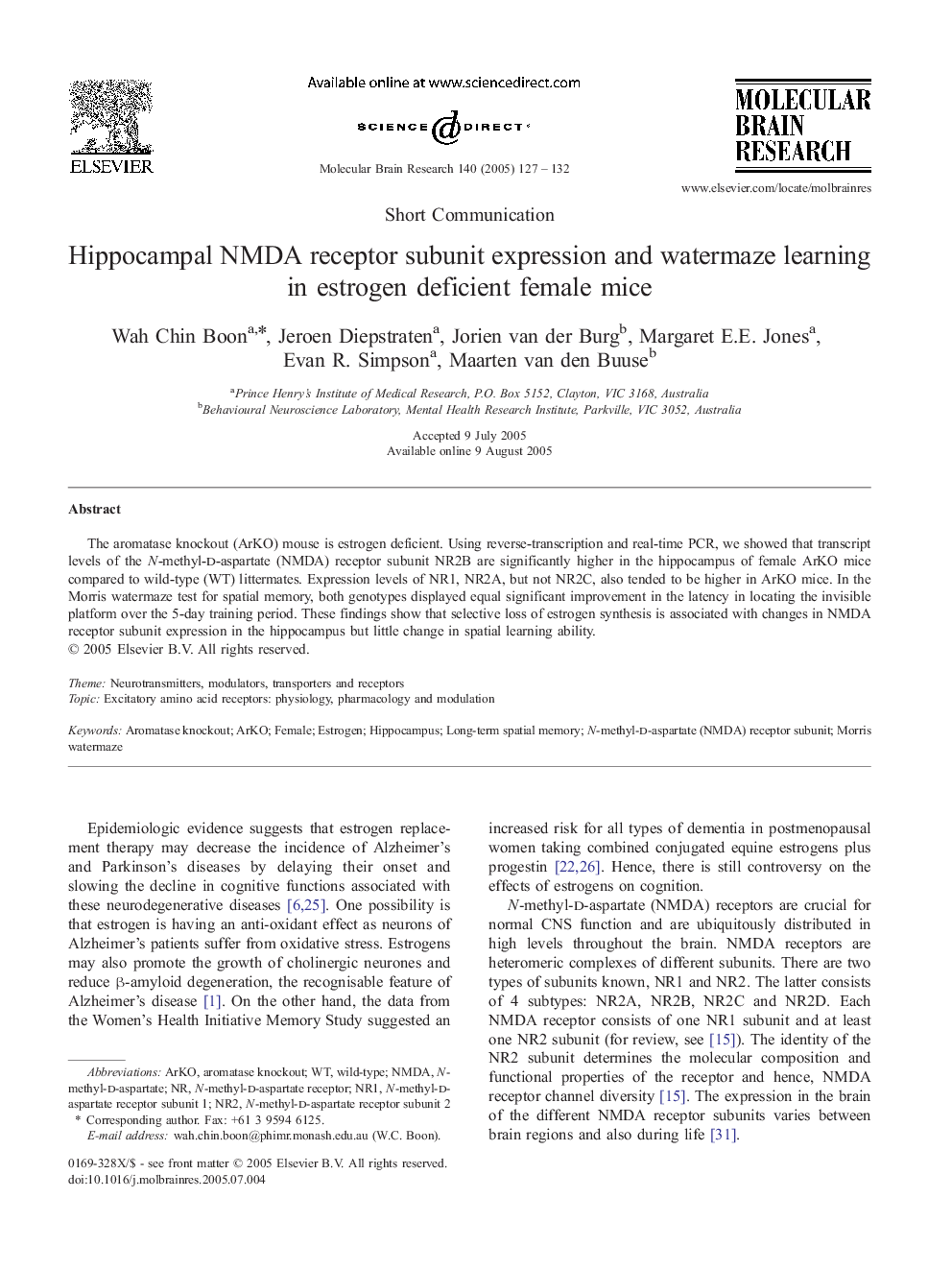| Article ID | Journal | Published Year | Pages | File Type |
|---|---|---|---|---|
| 9410559 | Molecular Brain Research | 2005 | 6 Pages |
Abstract
The aromatase knockout (ArKO) mouse is estrogen deficient. Using reverse-transcription and real-time PCR, we showed that transcript levels of the N-methyl-d-aspartate (NMDA) receptor subunit NR2B are significantly higher in the hippocampus of female ArKO mice compared to wild-type (WT) littermates. Expression levels of NR1, NR2A, but not NR2C, also tended to be higher in ArKO mice. In the Morris watermaze test for spatial memory, both genotypes displayed equal significant improvement in the latency in locating the invisible platform over the 5-day training period. These findings show that selective loss of estrogen synthesis is associated with changes in NMDA receptor subunit expression in the hippocampus but little change in spatial learning ability.
Keywords
Related Topics
Life Sciences
Neuroscience
Cellular and Molecular Neuroscience
Authors
Wah Chin Boon, Jeroen Diepstraten, Jorien van der Burg, Margaret E.E. Jones, Evan R. Simpson, Maarten van den Buuse,
